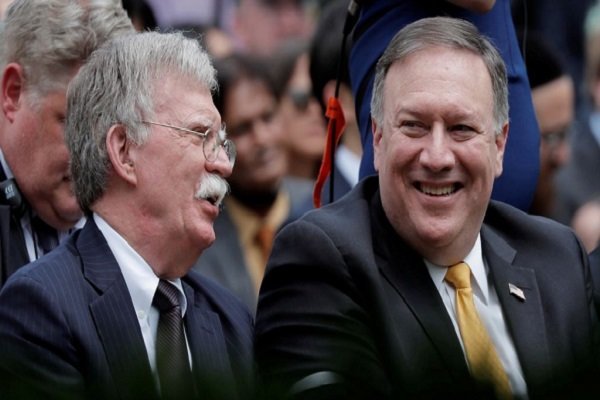
Three main messages of the Warsaw Summit

In the meanwhile, many of the Western sources had to confess that the former remarks made by the U.S. officials didn't really match the result of this meeting. Mike Pompeo, the U.S. Secretary of State had announced before that the Warsaw summit will focus on the destructive role of Iran! In the West Asia region.
In other words, the American authorities intended to turn the Warsaw summit into a specific "Anti-Iran move" in the international system. As the Iranian Foreign Ministry Spokesman Bahram Qassemi said; "Despite Washington’s extensive attempts to hold an all-inclusive summit and forge a new alliance against the Islamic Republic of Iran, the number of participants and their low levels of participation, coupled with their reluctance to support any anti-Iran decision… turned the final statement of the summit into a useless document.” early Friday.
Accordingly, it's important to take the main messages of the Warsaw Summit into consideration:
First message: The U.S. international isolation
The contradiction between the initial targets and the final product of the Warsaw Summit once again demonstrated the isolation of the United States in the international system. Though Trump had spoken about restoring U.S. authority in the world during the 2016 presidential elections, the Warsaw Summit showed that the White House authorities had failed to convince and persuade their allies to help them reach their goals.
This was well reflected in the remarkable disagreement between European countries and Washington during the Warsaw anti-Iran summit. So far, many of the U.S. officials, including Jimmy Carter, Brzezinski, and Bill Clinton, have spoken about the end of the unipolar system. But today, everyone can see the White House's isolation in global equations.
This isolation is not the result of the presence of Democrats or Republicans in the White House. It should be noted that such isolation isn't the result of the Democrats or the Republican's presence, but rather a new structure that is getting stronger among international players. Accordingly, Washington has lost its power to impose its will on other players.
Second message: The link between productive terrorism and takfiri terrorism
The terrorist attack which has recently happened in the Khash-Zahedan road and led to the martyrdom of dozens of our country's guards exactly at a time when the Warsaw Summit was held, proved the link between productive terrorism (American terrorism) and its pieces, namely the Takfiri terrorists.
In this equation, we can see a network that includes the United States and the Zionist regime as the head, and the Takfiri terrorists as the fingers (executives of Washington and Tel Aviv's orders). This link has long been established between the United States and the Takfiri terrorism, however, we have witnessed it becoming more significant over the past eight years and following the ongoing changes in the region (especially in Syria and Iraq).
Third message: Iran's growing power in the region
The third and most important message of the Warsaw Summit is the rise of the regional power of the Islamic Republic of Iran. One of the main reasons for the failure of the Warsaw Summit (contrary to Washington's will) is the confusion of the White House leaders in the face of our country's influential and undeniable power.
Obviously, the longer this confusion continues, the United States will have to pay heavier costs as a result of its opposition to the Islamic Republic of Iran. In this complicated process, not only the Donald Trump government but also the U.S. next administrations, has no way but surrendering before a "Powerful Iran," and accepting it in the region and the international system. This is the same truth that many Western strategists have emphasized.
By Hanif Ghaffari
Source:TehranTimes















